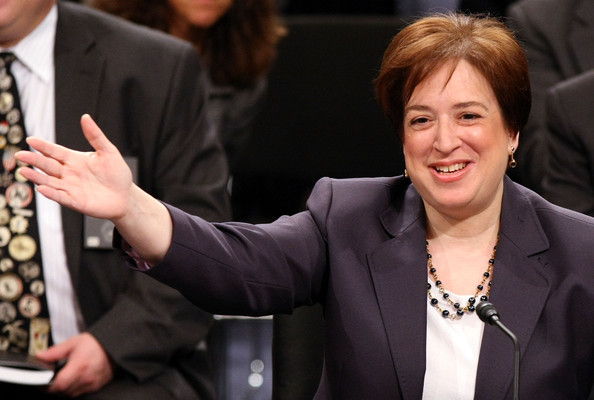Why Kagan Has Skin in the Game

In my last post I argued that Justice Elana Kagan is obliged by 28 U.S.C. 455 (b)(3) of the federal recusal statute, which applies to Supreme Court justices, to recuse herself from the challenge to the Obama Health Care law. The provision requires a judge to recuse if he or she “has served in governmental employment and in such capacity participated as counsel, adviser… concerning the proceeding or expressed an opinion concerning the merits of the case in controversy.”
I pointed out that e-mails made public through Freedom of Information Act litigation show that Kagan expressed her opinion (glee) as solicitor general when the law was enacted, and that she personally participated as Solicitor General in formulating a response to the challenges to the constitutionality of the law. There is simply no basis to dispute that she was a governmental official at the relevant time, expressed her opinion about the law, and therefore, “participated as counsel concerning the proceeding.”
One of the few astute comments pointed out that the case before the Supreme court may not be the same “case in controversy” to which she participated. This may be technically true; I expect her to make this point in any opinion she releases concerning her recusal or non-recusal. Many cases were filed challenging the constitutionality of the law. Some were filed by states and others by individuals throughout the nation.
I cannot say for sure that the Complaints she read last year were in the cases which the Supreme Court consolidated and agreed to hear. It is very likely that she participated in the massive multi-state challenge to the law filed in Florida since it joined about 15 different states. But if I’m wrong, and she somehow managed to evade participation in all of the big challenges to the law, and only considered the small, less consequential ones, this would be quite odd. The Solicitor General is the government’s top courtroom advocate, and normally would be expected to weigh in on all of the big challenges to the constitutionality of any federal law.
Many of the commenters accused me of ignoring the supposed case for Justice Clarence Thomas’ recusal. If there is such a case, nobody made it in a lawlerly manner by citing the provision of the Recusal Statute that applies. Rather, it was pointed out over and over again that his wife is employed by a conservative advocacy group in Washington which opposes the law.
Even if this is true, it does not support recusal under the broadly worded sec. 455(a) (providing a judge shall recuse himself in a case where his “impartiality might reasonably be questioned.”) There is no reported decision interpreting this provision in the way the commenters advance, i.e., basing recusal on the mere opinions of a family member, no matter how strongly felt or expressed.
Such a standard, would, of course, cast an incredibly wide net because federal judges are political people and have politically engaged family members. According to the Seventh Circuit Court of Appeals “between half and four-fifths of all federal judges are involved in partisan politics before appointment.” Matter of Mason, 916 F.2d 384, 386 (7th Cir. 1990). This is not, nor has it ever been, a basis for Thomas’ recusal.
Judges must recuse themselves if a case involves a family member as a party, lawyer or where the relative “has an interest that could be substantially affected by the outcome of the proceeding.” 28 U.S.C. 455(b)(5). But all of the cases interpret “interest” as a financial one not a political one. So if Mrs. Thomas’ organization promised to elevate her to Executive Director or otherwise reward her financially if the Supreme Court ruled the law were unconstitutional, then she would have a direct tangible interest in the outcome of the case. But, there is no evidence that this is so. All we know from the comments is that she toils in one of thousands of advocacy groups in Washington, and happens to be married to a Supreme Court justice.
Justice Ruth Bader Ginsburg’s late husband’s extensive stock portfolio led to many calls for her recusal from cases involving these companies. There, a financial interest might exist. But she never recused herself from a case based upon this argument and the calls for her to do so never gained traction. More importantly, she has not ceased her affiliation with the N.O.W. Legal Education and Defense Fund, which has signed onto many amicus briefs in Supreme Court cases involving gender, discrimination and abortion.
The recusal statute does not forbid judges from exposure to opinion. It only forbids judges from judging when they have skin in the game. Justice Kagan has skin in the outcome of the health care litigation. Does anyone really believe she can be open-minded about the constitutionality of the health care law?

